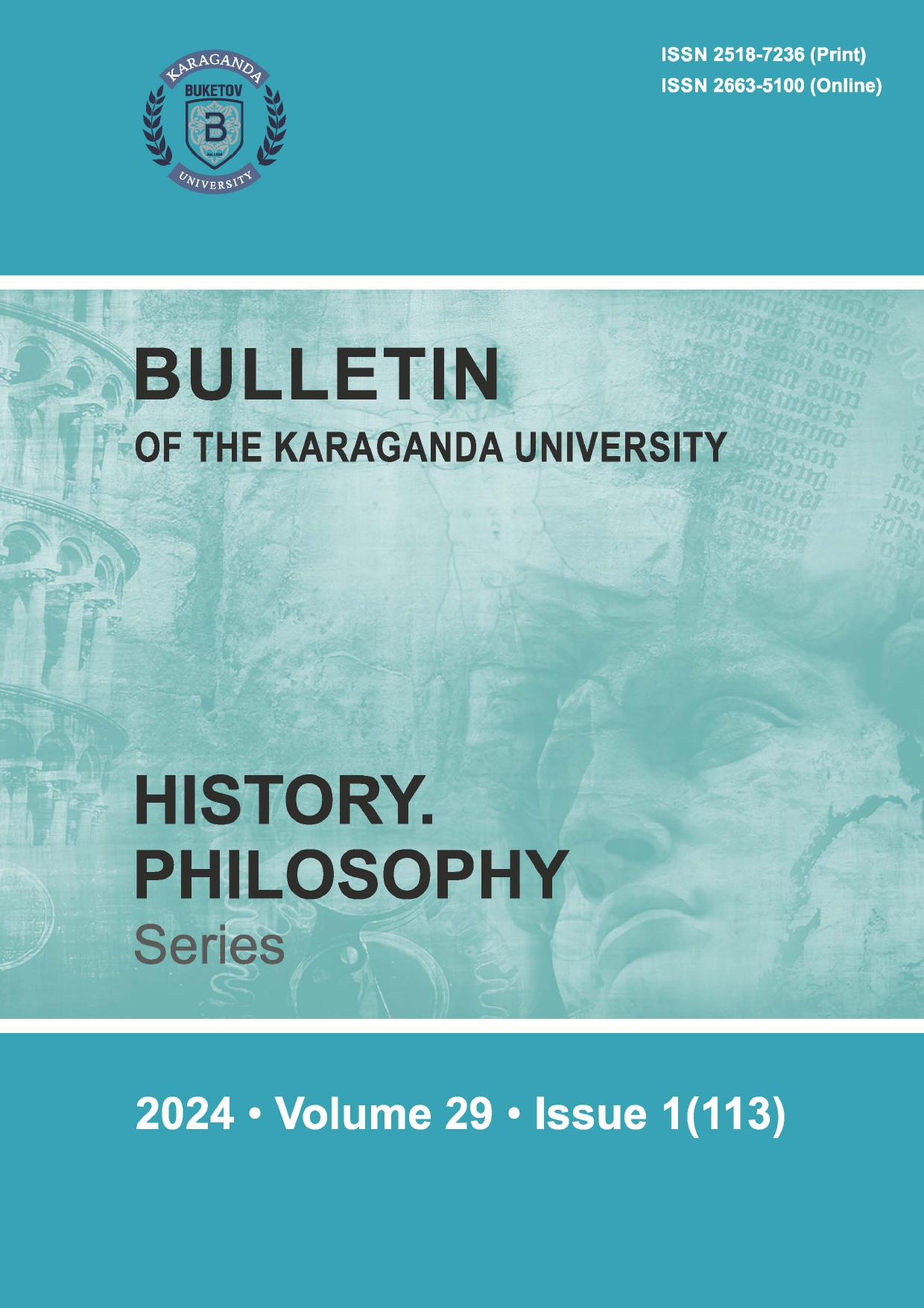Secret office work in the system of Soviet administration of Kazakhstan (1920‒1930)
DOI:
https://doi.org/10.31489/2024hph1/121-131Keywords:
secret office work, Soviet management system, secret documents, special department, secret department, control body, confidentiality of informationAbstract
In the paper secret office work in the system of Soviet administration of Kazakhstan during the 1920s‒1930s based on the careful analysis of documents of 719 fund of the Archive of the President of the Republic of Kazakhstan is explored and analyzed. The role and significance of secret office work in the system of Soviet administration, its difference from traditional office work, is one of the topics not taken as an object of research in the national humanitarian sciences. Secret office work, of course, consists of complex processes of several stages, which include preparation of confidential documents, organization of their movement and storage. It was natural for secret office work to become a powerful force in the Soviet administration system, which is closely related to the major political, social, and economic reforms in society. Secret information related to the strategic directions of the Soviet state such as military, financial and economic, political development, was divided into three categories. The procedure for receiving and sending confidential documents was established by special instructions, and special services were organized. The secret units were under strict control of the State Political Administration. The use of the pure inspection method in the inspection of the service turned the secret procedure into a flexible tool of the closed party-soviet management system. This
topic that requires research in an interdisciplinary context was carried out with the help of the analysis of accessible classified documents in the service of Soviet control bodies.




